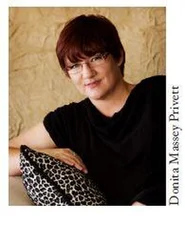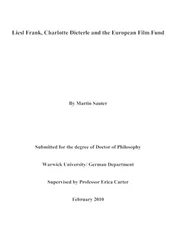Frank Tallis - Death And The Maiden
Здесь есть возможность читать онлайн «Frank Tallis - Death And The Maiden» весь текст электронной книги совершенно бесплатно (целиком полную версию без сокращений). В некоторых случаях можно слушать аудио, скачать через торрент в формате fb2 и присутствует краткое содержание. Жанр: Исторический детектив, на английском языке. Описание произведения, (предисловие) а так же отзывы посетителей доступны на портале библиотеки ЛибКат.
- Название:Death And The Maiden
- Автор:
- Жанр:
- Год:неизвестен
- ISBN:нет данных
- Рейтинг книги:5 / 5. Голосов: 1
-
Избранное:Добавить в избранное
- Отзывы:
-
Ваша оценка:
- 100
- 1
- 2
- 3
- 4
- 5
Death And The Maiden: краткое содержание, описание и аннотация
Предлагаем к чтению аннотацию, описание, краткое содержание или предисловие (зависит от того, что написал сам автор книги «Death And The Maiden»). Если вы не нашли необходимую информацию о книге — напишите в комментариях, мы постараемся отыскать её.
Death And The Maiden — читать онлайн бесплатно полную книгу (весь текст) целиком
Ниже представлен текст книги, разбитый по страницам. Система сохранения места последней прочитанной страницы, позволяет с удобством читать онлайн бесплатно книгу «Death And The Maiden», без необходимости каждый раз заново искать на чём Вы остановились. Поставьте закладку, и сможете в любой момент перейти на страницу, на которой закончили чтение.
Интервал:
Закладка:
The lord marshal registered the emperor’s glum expression and felt obliged to lift his spirits.
‘There is some good news, Your Majesty.’
‘Concerning the mayor?’
‘Intelligence that, if managed correctly, has considerable potential for …’ the lord marshal chose his word carefully, ‘advantage.’
More talk followed, indirect and euphemistic.
The emperor stood and crossed the floor to inspect a clock, suspended on a chain within a lyre-shaped case with windows. He touched the gilt shell mounted on its summit.
‘I will leave the matter in your capable hands, Lord Marshal,’ said the emperor. ‘But remember, time marches on.’
He tapped the glass and indicated the clock face to underscore his exhortation.
The interview was now over.
Gathering the signed documents together, the lord marshal placed them in a leather briefcase. He rose, bowed, and said: ‘Very good, Your Majesty.’
15
‘I would like to know more of Fraulein Rosenkrantz’s medical history,’ said Rheinhardt, ‘and I am particularly interested in those illnesses that she might have suffered from during the spring and summer months.’
‘We have already discussed all that could possibly be relevant,’ said Doctor Engelberg testily.
‘Even so,’ said Rheinhardt.
Engelberg pulled open the drawer of his cabinet and selected a green folder. Returning to his seat, he said, ‘What was it you wanted, illnesses in the spring and summer months?’
‘That is correct.’
The doctor scrutinised his notes.
‘She had a stomach complaint. But nothing else in March and April, other than the problems you already know about. She complained of difficulty swallowing for the first time on the third of February, and I referred her to Professor Saminsky four weeks later.’
‘Stomach complaint?’
‘A little indigestion, that’s all.’
Engelberg’s index finger dropped down the margin. He hummed contemplatively.
‘What is it?’ asked Rheinhardt.
‘My entry dated April the twenty-seventh: fever, lower abdominaltenderness, and vaginal discharge . A gynaecological problem — an infection of some kind — I advised Fraulein Rosenkrantz to rest.’
‘Frau Marcus mentioned that Fraulein Rosenkrantz was confined to her bed because of what she called a ladies’ problem.’
‘Indeed.’
‘Did you identify the illness?’
‘Not specifically. There was no need. I knew it would clear up soon enough.’
‘But you must have examined your patient?’
The doctor appeared outraged by Rheinhardt’s suggestion. ‘Not invasively, no.’
‘But surely it would have been appropriate for you to do so.’
Engelberg shook his head. ‘A doctor must have good cause to compromise a woman’s dignity.’
Rheinhardt hesitated before continuing: ‘Is it possible that Fraulein Rosenkrantz had contracted a venereal disease?
‘No.’
‘You’re quite sure?’
‘Yes.’
‘Then could the infection have developed subsequent to a termination?’
Engelberg started. ‘What are you implying, Inspector?’ Rheinhardt did not respond. Engelberg tutted and said, ‘Yes, I suppose the infection might have been caused by a termination, but Fraulein Rosenkrantz gave me no reason to believe that this was a cause I should be considering. What have you found out, Inspector? Perhaps you would be so kind as to speak frankly.’
‘Fraulein Rosenkrantz fell pregnant in the spring.’
‘Who told you that?’ said Engelberg, evidently unconvinced.
‘An associate of hers.’
Engelberg tapped his notes. ‘She didn’t complain of these symptoms until late April.’
‘Perhaps she felt ashamed, embarrassed? Perhaps she tolerated her discomfort and only came to see you after procrastinating.’
Engelberg shrugged. ‘That is possible.’ He closed the folder. ‘Inspector, I think you should talk to Professor Saminsky.’
‘I intend to. He is away at present, but I understand he will be returning shortly.’
‘A psychiatrist necessarily touches upon personal matters during treatment. But why must you delve into Fraulein Rosenkrantz’s private affairs? I really don’t see how it serves the public interest. What if she did terminate a pregnancy? I dare say she has already been judged by her maker. There is no need for a further judgement to be made in the newspapers.’
Rheinhardt stood up and put on his hat. Catching sight of his reflection in a mirror, he straightened the brim and squeezed the upturned ends of his moustache.
‘Thank you for your assistance, Herr Doctor. Please don’t trouble your servants. I can see myself out.’
16
As Liebermann approached the opera house he inserted his hand into his coat pocket and checked that the letter was still there. The young doctor needed to reassure himself of its existence, to dismiss nagging doubts that he had only imagined its appearance or perhaps misread the signature of the correspondent. Director Mahler had referred to ‘a confidential matter’ which he wished to discuss ‘in person’. Liebermann wondered if the director had developed a psychological problem that he did not wish to disclose to the opera house physician. The director’s mannerisms had certainly suggested a restless, neurotic temperament.
Przistaupinsky met Liebermann at the stage door and escorted him to the director’s office.
‘Herr Doctor Liebermann,’ said Mahler, rising from his chair. ‘I am so glad you could come.’ He glanced at his secretary. ‘Przistaupinsky — tea. Please sit, Herr Doctor.’
The surface of the director’s desk was obscured by a chaotic jumble of scores and books. Liebermann recognised two titles: a novel by Dostoyevsky, Crime and Punishment , and a book of philosophy by Gustav Fechner, Zend-Avesta, or Concerning All Things in Heaven and the Beyond .
Director Mahler made no small talk. He produced a newspaper from beneath a battered copy of Mozart’s Jupiter Symphony and showed Liebermann the masthead. It was the Deutsche Zeitung .
‘Yesterday’s edition,’ said the director. He opened it and presented Liebermann with a lengthy article, the heading of which was stark and unpleasant: The Jewish Regime at the Vienna Opera . ‘Did you see this?’
‘I do not read the Deutsche Zeitung ,’ said Liebermann.
‘It is an anonymous article that appears to have escaped the censor’s notice, a scurrilous piece of low journalism. Unfortunately, I must ask you to read it.’
Liebermann took the newspaper.
The initial paragraphs concerned Mahler’s style of conducting.
What Herr Mahler sometimes does cannot be called conducting. It is more like the gesticulations of a dervish and, when the Kapellmeister has St Vitus’s dance, it’s really very difficult to keep time. His left hand often doesn’t know what the right one is doing …
The author then went on to attack Mahler’s habit of reinforcing sections of the orchestra with additional instruments.
If Herr Mahler wants to make corrections he should tackle the works of Mendelssohn and Rubinstein … But let him leave our Beethoven in peace …
The final paragraph claimed that certain members of the orchestra had given Mahler a nickname, the Duty Sergeant, due to his peremptory manner, and had promised rebellion.
Resistance is smouldering, even the most cowardly and submissive musicians will finally join the majority, and one of these days Mahler will find himself without an orchestra … it is conceivable to have the Opera without Mahler, but not without the orchestra .
Liebermann was reminded of the civil disturbance he had seen outside the town hall and the hateful graffito. The general atmosphere of volatility had spread even to the philharmonic orchestra. He gave the newspaper back to the director and shook his head.
Читать дальшеИнтервал:
Закладка:
Похожие книги на «Death And The Maiden»
Представляем Вашему вниманию похожие книги на «Death And The Maiden» списком для выбора. Мы отобрали схожую по названию и смыслу литературу в надежде предоставить читателям больше вариантов отыскать новые, интересные, ещё непрочитанные произведения.
Обсуждение, отзывы о книге «Death And The Maiden» и просто собственные мнения читателей. Оставьте ваши комментарии, напишите, что Вы думаете о произведении, его смысле или главных героях. Укажите что конкретно понравилось, а что нет, и почему Вы так считаете.












